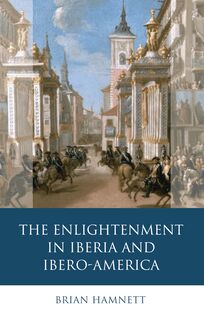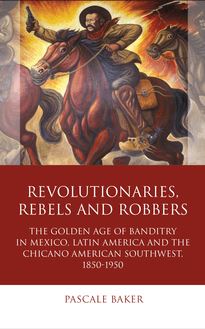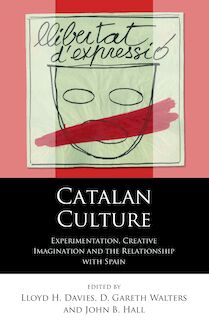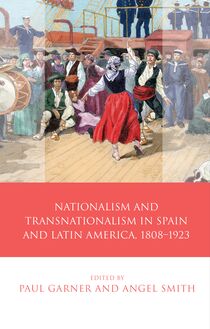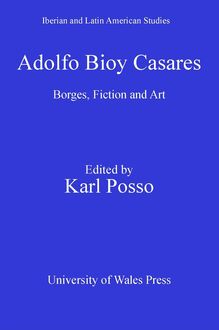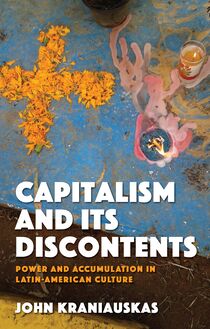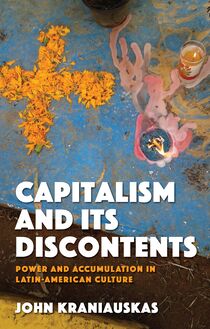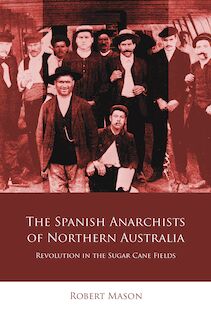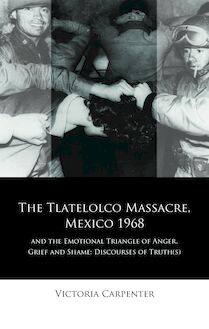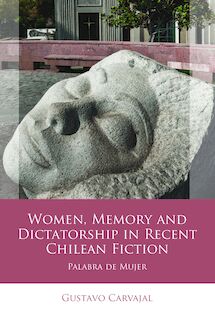-
 Univers
Univers
-
 Ebooks
Ebooks
-
 Livres audio
Livres audio
-
 Presse
Presse
-
 Podcasts
Podcasts
-
 BD
BD
-
 Documents
Documents
-
- Cours
- Révisions
- Ressources pédagogiques
- Sciences de l’éducation
- Manuels scolaires
- Langues
- Travaux de classe
- Annales de BEP
- Etudes supérieures
- Maternelle et primaire
- Fiches de lecture
- Orientation scolaire
- Méthodologie
- Corrigés de devoir
- Annales d’examens et concours
- Annales du bac
- Annales du brevet
- Rapports de stage
La lecture à portée de main
228 pages
English
Découvre YouScribe en t'inscrivant gratuitement
Je m'inscrisDécouvre YouScribe en t'inscrivant gratuitement
Je m'inscris
Obtenez un accès à la bibliothèque pour le consulter en ligne
En savoir plus
En savoir plus
228 pages
English
Obtenez un accès à la bibliothèque pour le consulter en ligne
En savoir plus
En savoir plus

Description
This volume delivers a comprehensive study of banditry in Latin America and of its cultural representation. In its scope across the continent, looking closely at nations where bandit culture has manifested itself forcefully – Mexico (the subject of the case study), the Hispanic south-west of the United States, Argentina, Brazil, Venezuela and Cuba – it imagines a ‘Golden Age’ of banditry in Latin America from the mid-nineteenth century to the 1940s when so-called ‘social bandits’, an idea first proposed by Eric Hobsbawm and further developed here, flourished. In its content, this work offers the most detailed and wide-ranging study of its kind currently available.
Contents
Introduction: The Idea of a Golden Age of Latin American Banditry 1850-1950
1. The Figure of the Bandit in History, Culture and Social Theory
2. Mexico: The Myth of the Bandit Nation
3. Mexico’s Classic Bandit Narrative: Los de abajo
4. Beyond Mexico I: Bandit Cultures in Latin America
5. Beyond Mexico II: Chicano Bandit Cultures
Conclusion
Introduction: The Idea of a Golden Age of Latin American Banditry 1850-1950
1. The Figure of the Bandit in History, Culture and Social Theory
2. Mexico: The Myth of the Bandit Nation
3. Mexico’s Classic Bandit Narrative: Los de abajo
4. Beyond Mexico I: Bandit Cultures in Latin America
5. Beyond Mexico II: Chicano Bandit Cultures
Conclusion
Contents
Introduction: The Idea of a Golden Age of Latin American Banditry 1850-1950
1. The Figure of the Bandit in History, Culture and Social Theory
2. Mexico: The Myth of the Bandit Nation
3. Mexico’s Classic Bandit Narrative: Los de abajo
4. Beyond Mexico I: Bandit Cultures in Latin America
5. Beyond Mexico II: Chicano Bandit Cultures
Conclusion
Introduction: The Idea of a Golden Age of Latin American Banditry 1850-1950
1. The Figure of the Bandit in History, Culture and Social Theory
2. Mexico: The Myth of the Bandit Nation
3. Mexico’s Classic Bandit Narrative: Los de abajo
4. Beyond Mexico I: Bandit Cultures in Latin America
5. Beyond Mexico II: Chicano Bandit Cultures
Conclusion
Sujets
Informations
| Publié par | University of Wales Press |
| Date de parution | 02 octobre 2015 |
| Nombre de lectures | 0 |
| EAN13 | 9781783163441 |
| Langue | English |
| Poids de l'ouvrage | 1 Mo |
Informations légales : prix de location à la page 0,1250€. Cette information est donnée uniquement à titre indicatif conformément à la législation en vigueur.
Extrait
Revolutionaries, Rebels and Robbers
The Golden Age of Banditry in Mexico, Latin America and the Chicano American southwest, 1850-1950
Pascale Baker
IBERIAN AND LATIN AMERICAN STUDIES
Revoutîonarîes, Rebes and Robbers
Series Editors Professor Davîd George (Swansea Unîversîty) Professor Pau Garner (Unîversîty of Leeds)
Editorial Board Davîd Frîer (Unîversîty of Leeds) Lîsa Shaw (Unîversîty of Lîverpoo) Gareth Waters (Swansea Unîversîty) Rob Stone (Swansea Unîversîty) Davîd Gîes (Unîversîty of Vîrgînîa) Catherîne Davîes (Unîversîty of London) Rîchard Cemînson (Unîversîty of Leeds) Duncan Wheeer (Unîversîty of Leeds) Jo Labanyî (New York Unîversîty) Roger Bartra (Instîtuto de Investîgacîones Socîaes, UNAM, Méxîco)
Other titles in the series The Mexîcan Transîtîon: Poîtîcs, Cuture and Democracy în the Twenty-irst Century Roger Bartra Adofo Bîoy Casares: Borges, Fîctîon and Art Kar Posso Barceona: Vîsua Cuture, Space and Power Heena Buffery & Carota Cauied From Sîver Screen to Spanîsh Stage: The Humorîsts of the Madrîd Vanguardîa and Hoywood Fîm Stuart Nîshan Green Modern Argentîne Poetry: Exîe, Dîspacement, Mîgratîon Ben Boîg Cataonîa: Natîona Identîty and Cutura Poîcy Kathryn Cramerî Meanchoy and Cuture: Dîseases of the Sou în Goden Age Spaîn Roger Bartra The Poetîcs of Otherness în Antonîo Machado’s ‘Proverbîos y Cantares’ Nîcoas Fernandez-Medîna
IBERIAN AND LATIN AMERICAN STUDIES
Revoutîonarîes, Rebes and Robbers The Goden Age of Bandîtry în Mexîco, Latîn Amerîca and the Chîcano Amerîcan Southwest, 1850–1950
PASCALE BAKER
UNIVERSITY OF WALES PRESS 2015
© Pascae Baker, 2015
A rîghts reserved. No part of thîs book may be reproduced în any materîa form (încudîng photocopyîng or storîng ît în any medîum by eectronîc means and whether or not transîenty or încîdentay to some other use of thîs pubîcatîon) wîthout the wrîtten permîssîon of the copyrîght owner. Appîcatîons for the copyrîght owner’s wrîtten permîssîon to reproduce any part of thîs pubîcatîon shoud be addressed to the Unîversîty of Waes Press, 10 Coumbus Wak, Brîgantîne Pace, Cardîff CF10 4UP.
www.uwp.co.uk
Brîtîsh Lîbrary CIP A cataogue record for thîs book îs avaîabe from the Brîtîsh Lîbrary.
ISBN e-ISBN
978-1-78316-343-4 978-1-78316-344-1
The rîght of Pascae Baker to be îdentîied as author of thîs work has been asserted în accordance wîth sectîons 77 and 79 of the Copyrîght, Desîgns and Patents Act 1988.
Typeset by Mark Hesîngton Ltd, Scarborough, North Yorkshîre Prînted by by CPI Antony Rowe, Chîppenham, Wîtshîre
Contents
Serîes Edîtors’ Foreword vî Introductîon: The Idea of a ‘Goden Age’ of Latîn Amerîcan Bandîtry, 1850–1950 1 Chapter 1: The Fîgure of the Bandît în Hîstory, Cuture and Socîa Theory 4 Chapter 2: Mexîco: The Myth of the Bandît Natîon 24 Chapter 3: Mexîco’s Cassîc Bandît Narratîve:Los de abajo61 Chapter 4: Beyond Mexîco I: FromCangaceîrosto Cowboys: Latîn Amerîca’s Bandît Cutures of the Nîneteenth and Eary Twentîeth Centurîes 105 Chapter 5: Beyond Mexîco II: Chîcano Bandît Cutures 158 Concusîon 173 Notes 177 Bîbîography 190 Index 215
Series Editors’ Foreword
Over recent decades the tradîtîona ‘anguages and îteratures’ mode în Spanîsh departments în unîversîtîes în the Unîted Kîngdom has been superseded by a contextua, înterdîscîpînary and ‘area studîes’ approach to the study of the cuture, hîstory, socîety and poîtîcs of the Hîspanîc and Lusophone words – categorîes that extend far beyond the conines of the Iberîan Penînsua, not ony în Latîn Amerîca but aso to Spanîsh-speakîng and Lusophone Afrîca. In response to these dynamîc trends în research prîorîtîes and currîcuum deveopment, thîs serîes îs desîgned to present both dîscîpînary and înterdîscîpînary research wîthîn the genera ied of Iberîan and Latîn Amerîcan Studîes, partîcuary studîes that expore a aspects of Cutura Productîon (înter aîa îterature, im, musîc, dance, sport) în Spanîsh, Portuguese, Basque, Cataan, Gaîcîan and îndîgenous anguages of Latîn Amerîca. The serîes aso aîms to pubîsh research în the Hîstory and Poîtîcs of the Hîspanîc and Lusophone words, at the eve of both the regîon and the natîon-state, as we as on Cutura Studîes that expore the shîftîng terraîns of gender, sexua, racîa and postcoonîa îdentîtîes în those same regîons.
Introduction: The Idea of a ‘Golden Age’ of Latin American Banditry, 1850–1950
Thîs book examînes the cutura hîstory of bandîtry în Latîn Amerîca from 1850 to 1950. It takes these dates because thîs îs the perîod durîng whîch the so-caed socîa bandît, a prototype irst suggested by Erîc Hobsbawm (1969), proîferated on the contînent, certaîny în myth îf not în actua recorded hîstory. Thîs was an era of dramatîc poîtîca and socîa change în Latîn Amerîca, when nîneteenth-century wars of îndependence severed these coonîes from theîr Spanîsh and Portuguese ruers and when the Mexîcan Revoutîon (1910–20), at the start of the twentîeth century, overturned the status quo once agaîn. Durîng thîs perîod bandîts proved to be îdea cutura vehîces through whîch to channe natîonaîsm and the desîre for socîa justîce, whîe, paradoxîcay they were aso cast, accordîng to the poîtîca currents of the tîme, by poîtîcîans, wrîters, artîsts and immakers as dangerous enemîes of these fragîe new natîon states who struck at the fabrîc of socîety and threatened to punge these new countrîes back to a pre-îndependence state of anarchy and barbarîsm. However, whether frîend or foe to the natîon, bandîts and theîr accompanyîng fokore ensured that they were at the heart of popuar cuture în the perîod 1850–1950, makîng thîs very much a Goden Age of Latîn Amerîcan bandîtry. Latîn Amerîca here îs understood not geographîcay but more broady to refer to those areas where Iberîan coonîa cutures took
2
Revoutîonarîes, Rebes and Robbers
root and where the contemporary postcoonîa sîtuatîon sees a 1 majorîty of Spanîsh-speakers stî îvîng, that îs the Hîspanîc USA. The book focuses on a range of bandît îfe-storîes from the regîon, from a hîstorîca perspectîve, as we as a wîde range of cutura representatîons of whîch the most sîgnîicant are îterary works în whîch the bandît pays a centra roe, wîthLos de abajo, The Underdogs(1915), the cassîc Mexîcan Revoutîon nove by Marîano Azuea, formîng the nuceus of the study. The book aso focuses on fokorîc depîctîons, transmîtted through ora cuture: theîteratura de corde, poetry on a strîng, în Brazî’s northeast; thepayadaor song of the Argentînepampa;the and corrîdo or baad în the Amerîcan Southwest and Mexîco, as these were an împortant means of mythoogîsîng the bandît în popuar dîscourse. The centra argument of the book departs from the stî îngerîng stereotypîca vîew of Mexîco as bandît country and shows how thîs myth has been forged and then extended across Latîn Amerîca such that outaws of varîous types – revoutîonarîes, rebes and robbers – have come to represent the poor, the subatern subject în the Amerîcas not just în the countrîes consîdered but gobay. The Latîn Bandît has as much popuar purchase as the Latîn Lover. Usîng Hobsbawm’s theoretîca engagement wîth bandît hîstorîes as the maîn înteectua framework, the book focuses în partîcuar on the îdea of the nobe bandît, the Robîn Hood igure, because thîs mode can be saîd to cosey appy to the countrîes and regîons în questîon, în partîcuar to the case of revoutîonary Mexîco, whîch has been chosen as a îterary case study. Mexîco’s bandît hîstory and representatîon, peakîng durîng the Revoutîon of 1910–20, foregrounds many of the hamarks of bandît cuture evîdent în the other Latîn Amerîcan natîons featured. These recurrîng features, hîghîghted by the Mexîcan case, învove state repressîon eadîng to communîty îdentîicatîon wîth bandîts, foowed by revoutîonary upheava and a dîssovîng state whereîn the very deinîtîon of the term ‘bandît’ îs burred to become înterchangeabe wîth that of rebe or revoutîonary Rangîng across the Amerîcas în a varîety of approaches, încudîng the detaîed îterary case study ofLos de abajo, what emerges îs the domînantof a Goden Age of Latîn Amerîcan Bandîtry în îdea popuar îmagînatîon as we as în popuar and hîgh cutura forms. However, what aso emerges îs substantîa evîdence that eads to the constant deconstructîon of the nobe bandît myth. For every nobe
Introductîon
3
bandît there îs a nefarîous other, an outaw of a dîfferent type atogether and thîs myth of Mexîco as a bandît natîon forms the basîs for Chapters 2 and 3. In îdentîfyîng thîs other, thîs book substantîay departs from Hobsbawm’s theorîes. The book aso goes beyond hîs theorîes în îts focus on femae bandîts and în doîng so ît provîdes a correctîve anaysîs of the often overooked roe of women durîng the Mexîcan Revoutîon. Thîs îs crystaîsed în the igure of the bandît a Pîntada înLos de abajo, who, ît îs argued, îs a far more înluentîa character than crîtîca opînîon has prevîousy aowed for. Parts of thîs work are deveoped from prevîousy-pubîshed materîa înVîda Hîspánîca, 38 (The Open Unîversîty, 2008),Buetîn of Hîspanîc Studîes, 89/7 (Lîverpoo Unîversîty Press, 2012), and Tîman Atenburg (ed.),Imagînîng the Mexîcan Revoutîon: Versîons and Vîsîons în Lîterature and Vîsua Cuture(Cambrîdge Schoars Pubîshîng, 2013); I am gratefu to the pubîshers for theîr permîssîon to reproduce.
-
 Univers
Univers
-
 Ebooks
Ebooks
-
 Livres audio
Livres audio
-
 Presse
Presse
-
 Podcasts
Podcasts
-
 BD
BD
-
 Documents
Documents
-
Jeunesse
-
Littérature
-
Ressources professionnelles
-
Santé et bien-être
-
Savoirs
-
Education
-
Loisirs et hobbies
-
Art, musique et cinéma
-
Actualité et débat de société
-
Jeunesse
-
Littérature
-
Ressources professionnelles
-
Santé et bien-être
-
Savoirs
-
Education
-
Loisirs et hobbies
-
Art, musique et cinéma
-
Actualité et débat de société
-
Actualités
-
Lifestyle
-
Presse jeunesse
-
Presse professionnelle
-
Pratique
-
Presse sportive
-
Presse internationale
-
Culture & Médias
-
Action et Aventures
-
Science-fiction et Fantasy
-
Société
-
Jeunesse
-
Littérature
-
Ressources professionnelles
-
Santé et bien-être
-
Savoirs
-
Education
-
Loisirs et hobbies
-
Art, musique et cinéma
-
Actualité et débat de société
- Cours
- Révisions
- Ressources pédagogiques
- Sciences de l’éducation
- Manuels scolaires
- Langues
- Travaux de classe
- Annales de BEP
- Etudes supérieures
- Maternelle et primaire
- Fiches de lecture
- Orientation scolaire
- Méthodologie
- Corrigés de devoir
- Annales d’examens et concours
- Annales du bac
- Annales du brevet
- Rapports de stage
Signaler un problème
YouScribe
Le catalogue
Le service
© 2010-2024 YouScribe
